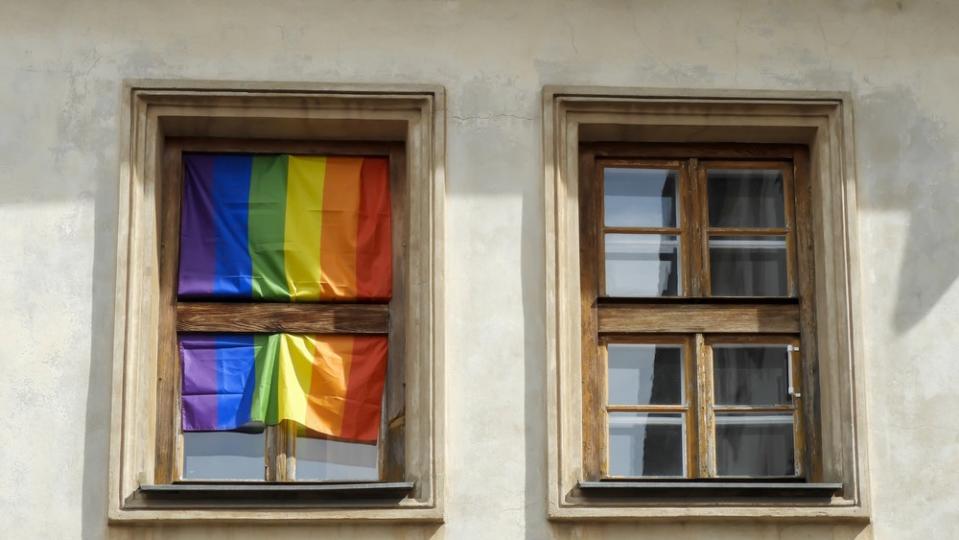LGBTQ+ Friendly Cities See 50% Premium On Home Prices

Homebuyers in LGBTQ+-friendly areas must earn $150,364 annually to afford the median-priced home, nearly 50% more than the requirement in areas without the protections.
According to a Redfin report the wide disparity indicates the financial burdens faced by those seeking inclusivity. The typical home costs $492,290 in regions with LGBTQ+ housing laws, compared to $357,010 in areas lacking such protections.
To afford a home in areas with LGBTQ+ protections, buyers need an income 46.8% higher than the $102,435 required in areas without such laws. The income requirement is much higher than the estimated median U.S. household income of $79,689 in 2023, Redfin said.
According to the report, affordability is defined by the ability of a buyer to spend no more than 30% of their income on monthly housing payments, assuming a 10% down payment.
Don't Miss:
Warren Buffett once said, "If you don't find a way to make money while you sleep, you will work until you die." These high-yield real estate notes that pay 7.5% – 9% make earning passive income easier than ever.
A new fund backed by Jeff Bezos offers a 7-9% target yield with monthly dividends. Here’s how you can invest today.
That standard becomes difficult to meet in areas with high home prices and strong LGBTQ+ protections, where even those earning the median income must allocate a much larger portion of their income to housing costs.
Discrimination remains a concern for many in the LGBTQ+ community, affecting their housing choices and opportunities, the report noted. A separate Redfin survey issued in 2023 found that 22% of LGBTQ+ individuals believe they faced discrimination based on sexual orientation during their most recent home search.
That perceived bias can drive many within the community to seek more inclusive areas, even if it means paying a premium for housing.
The affordability of homes in LGBTQ+-friendly metros presents another challenge. In cities like San Francisco and Portland, Oregon, where the LGBTQ+ population is among the highest, less than 7% of homes are affordable to someone with a median local income. The scarcity of affordable housing is even more pronounced in San Francisco, where only 5.1% of homes fall within reach for the median earner.
"LGBTQ+ Americans face disproportionately large barriers to homeownership," Redfin Senior Economist Elijah de la Campa said in the report. "On top of paying a premium to live somewhere that feels safe, many LGBTQ+ house hunters are earning less than the typical U.S. worker and face discrimination while shopping for homes despite laws that prohibit it."
Trending: Warren Buffett flipped his neighbor's $67,000 life savings into a $50 million fortune — How much is that worth today?
Given the heightened costs and challenges, many within the LGBTQ+ community find themselves having to make sacrifices to afford their living spaces.
A separate Redfin survey conducted in February found that 56.5% of LGBTQ+ homeowners and renters experience difficulties in meeting their housing payments — whether sometimes, regularly, or extensively. The figure contrasts with 49.9% of the general U.S. homeowners and renters who have trouble meeting their housing responsibilities.
Financial compromises extend beyond typical budget adjustments.
According to the report, 24.5% of LGBTQ+ individuals who struggle with housing costs have resorted to borrowing money from family or friends to manage their payments, compared to only 17% of their non-LGBTQ+ counterparts. Additionally, the economic burden has led some LGBTQ+ individuals to postpone or decide against significant life decisions — such as having children — at nearly three times the rate of those not identifying as LGBTQ+.
On a more positive note, pockets of affordability provide some relief.
Cities like Rochester, New York and Detroit, Michigan are examples of metropolitan areas where living costs remain within reach for those earning a median income. In Rochester, 55.5% of the home listings are affordable, the highest among the cities in states with LGBTQ+ protections.
Similarly, 55.3% of homes in Detroit are within financial reach for median-income earners.
Keep Reading:
Elon Musk and Jeff Bezos are bullish on one city that could dethrone New York and become the new financial capital of the US. Investing in its booming real estate market has never been more accessible.
Investing in real estate just got a whole lot simpler. This Jeff Bezos-backed startup will allow you to become a landlord in just 10 minutes, and you only need $100.
"ACTIVE INVESTORS' SECRET WEAPON" Supercharge Your Stock Market Game with the #1 "news & everything else" trading tool: Benzinga Pro - Click here to start Your 14-Day Trial Now!
Get the latest stock analysis from Benzinga?
This article LGBTQ+ Friendly Cities See 50% Premium On Home Prices originally appeared on Benzinga.com
© 2024 Benzinga.com. Benzinga does not provide investment advice. All rights reserved.

 Yahoo Finance
Yahoo Finance 